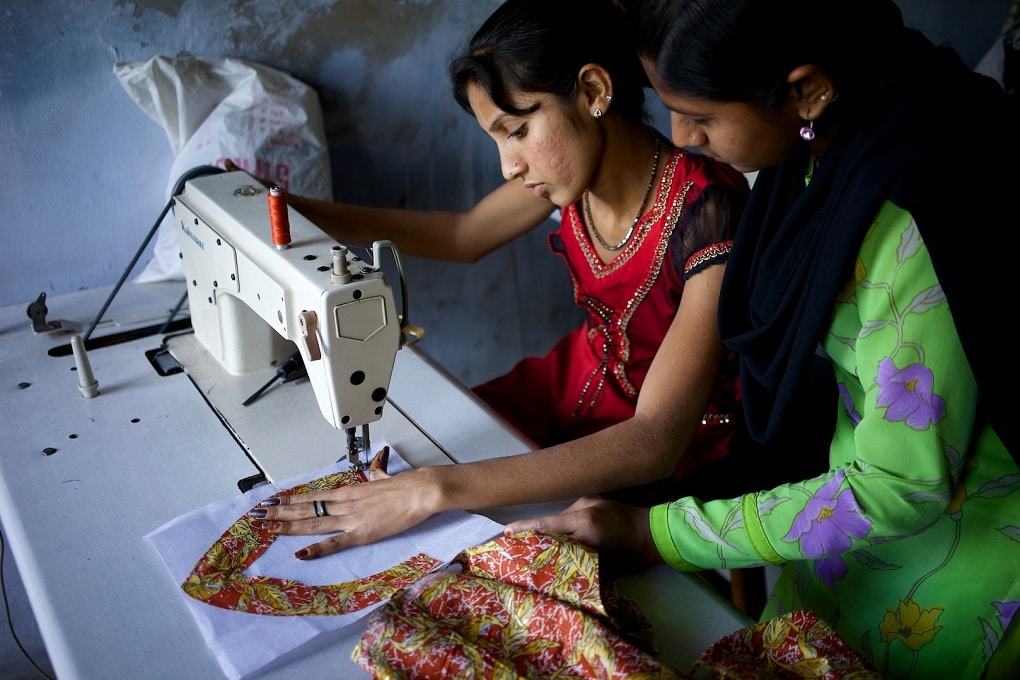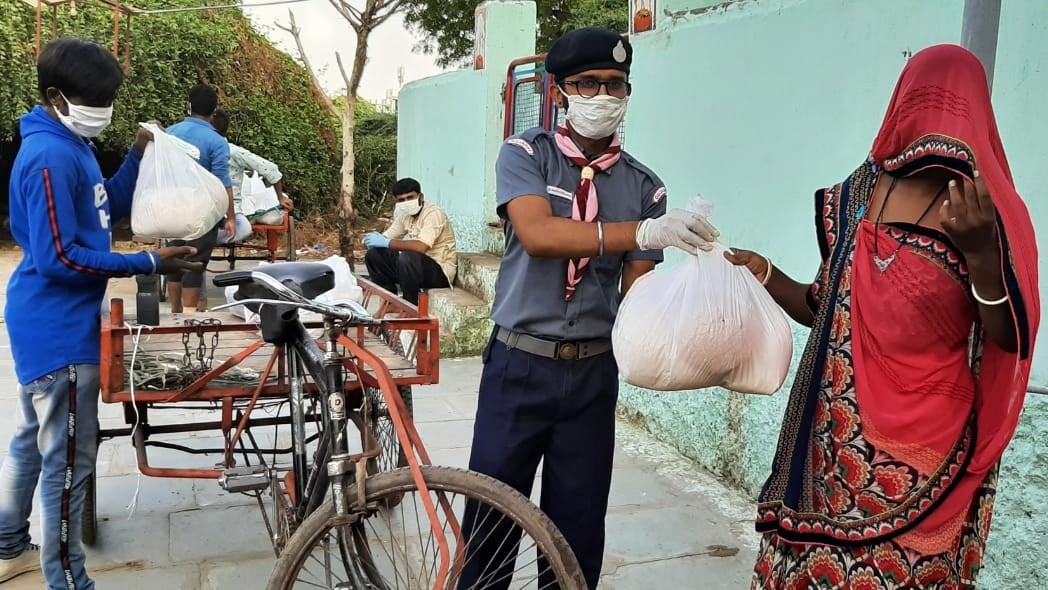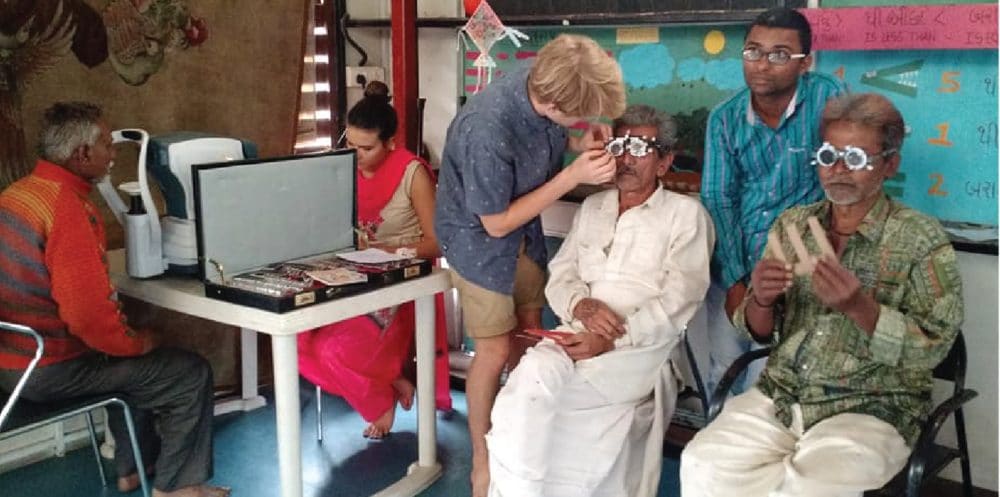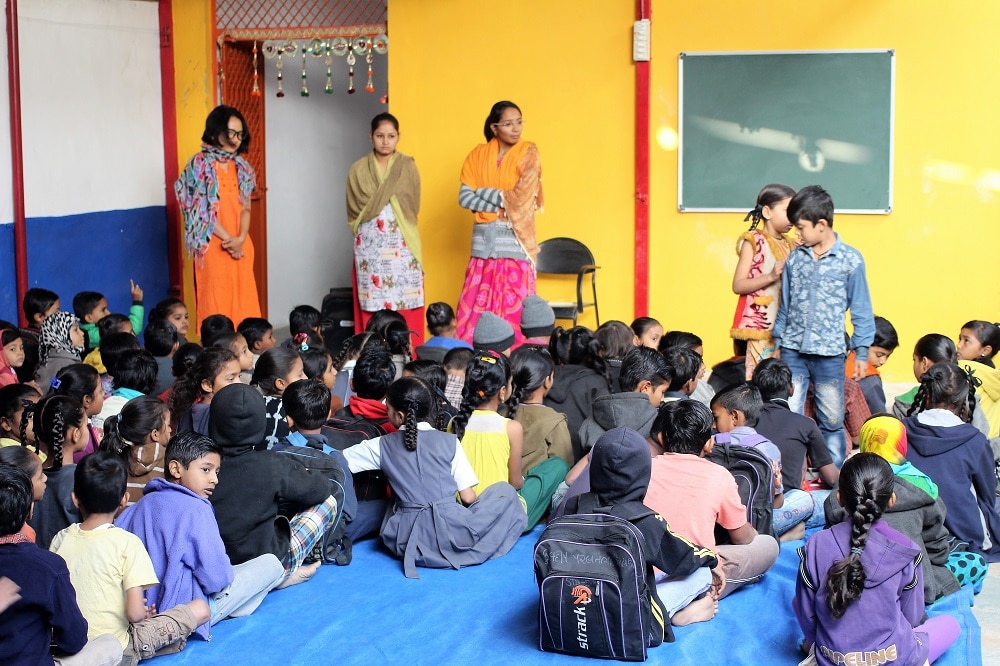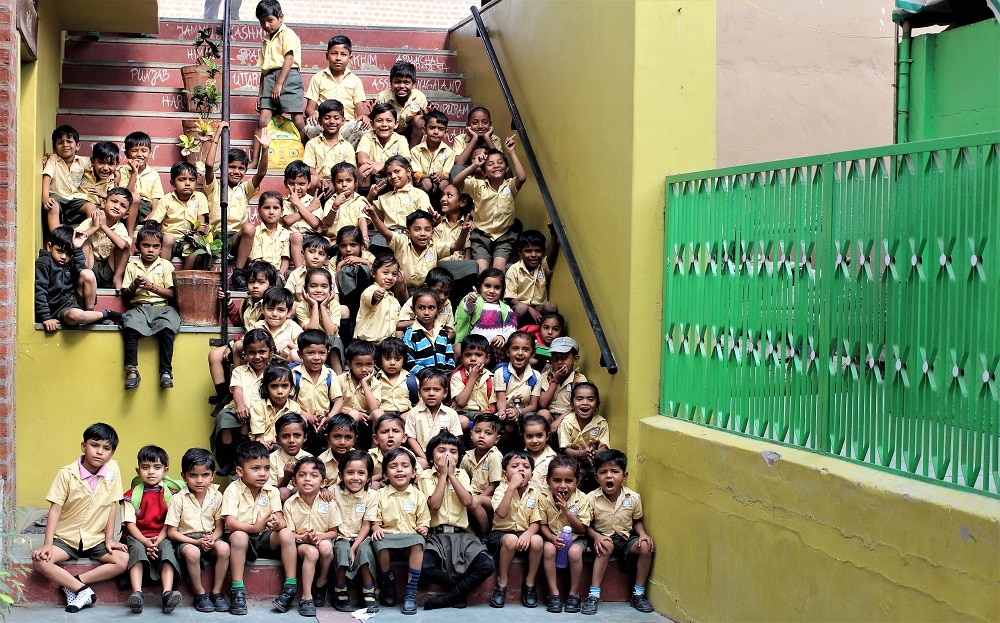India (Ahmedabad)
The spirit of Mahatma Gandhi lives on in western India, brightening the futures of underprivileged children thanks to NGO Manav Sadhna.
Let’s go back to 1990. Under the branches of a tree in the Gandhi Ashram in Ahmedabad, a team of young volunteers began gathering every Saturday. Inspired by Gandhi’s unshakable beliefs in love, peace, truth and compassion, they played with street children from a hostel based in the ashram; providing the kids with nutritional meals and teaching them about basic hygiene by cutting their nails and bathing them.
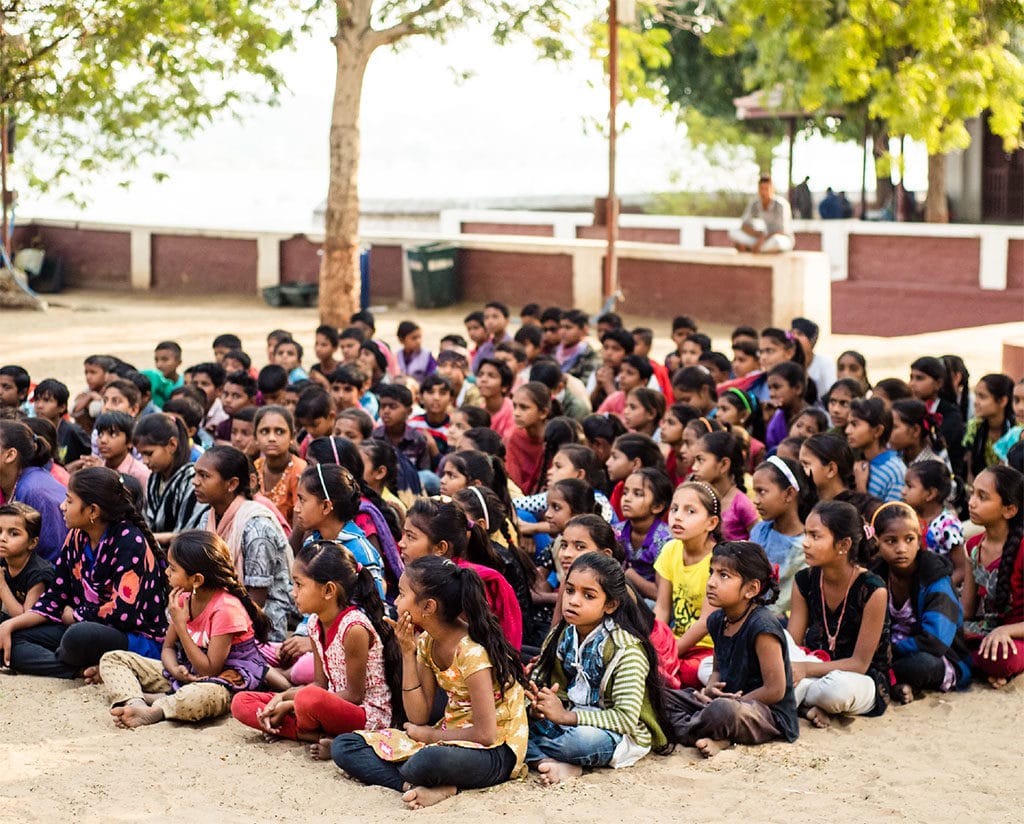
The idea was to give them love. Overwhelmed by the reciprocal reception of the young children and moved by the extreme poverty and dire circumstances of the premises, this quickly became a full time endeavour.
Today ‘Manav Sadhna’ (Worship God by Serving Humanity) is a social NGO with an extensive ecosystem that offers nearly 40 programmes in holistic education, nutrition, sanitation, health and hygiene, youth and women’s empowerment, senior care and livelihoods. It is still based in a quiet corner of the Gandhi Ashram where Mahatma Gandhi lived, just across the road from one of the largest slums of Ahmedabad.
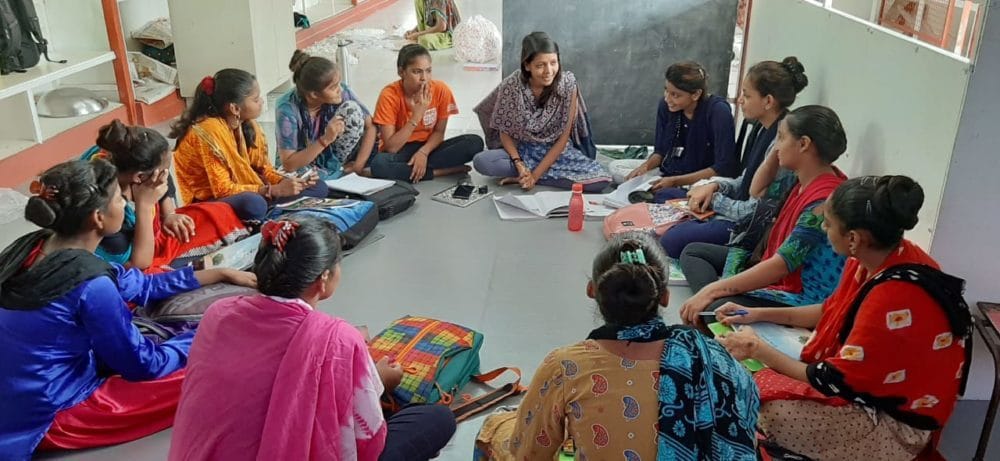
Gandhi’s first ashram in India was established in Ahmedabad on his return from South Africa in 1915. While at the ashram, he formed a school that focused on manual labour, agriculture and literacy to advance his efforts for self-sufficiency.
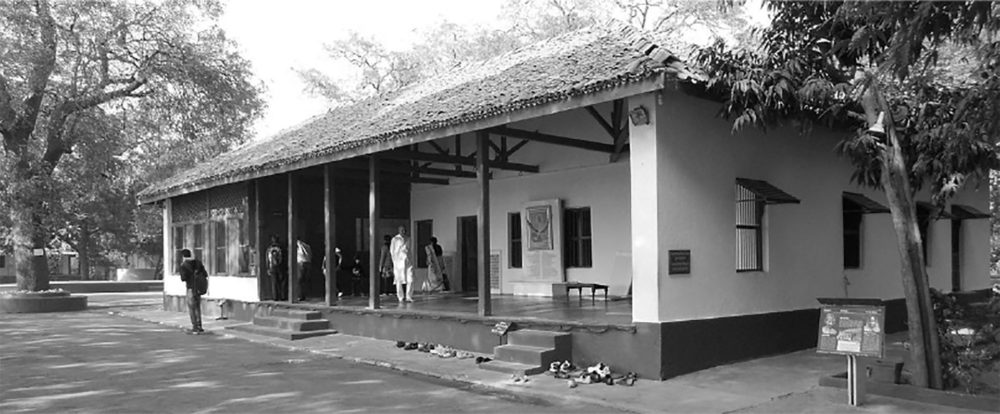
Today it serves as a source of inspiration and guidance – and stands as a monument to Gandhi’s life mission of making the spiritual practical and helping the neediest of children so that the next generation might grow up with an innate sense of what it means to “love all and serve all.”
“We are blessed to get an opportunity to serve from Gandhi’s land where Gandhiji spent 13 years of his life and serve the poorest of the poor.”
Manav Sadhna’s constructive humanitarian projects address the issue of educating while employing slum children. In its crèche, locally employed women serve as ‘nannies’ to a couple of dozen slum kids, so other mothers can earn a livelihood. An activity centre in the middle of the squatter settlement operates as an informal school in the morning. In the afternoon, youth are trained with vocational skills for better employability. In the evening, it transforms into a community centre with sports, leisure, gymnastics and social gatherings.
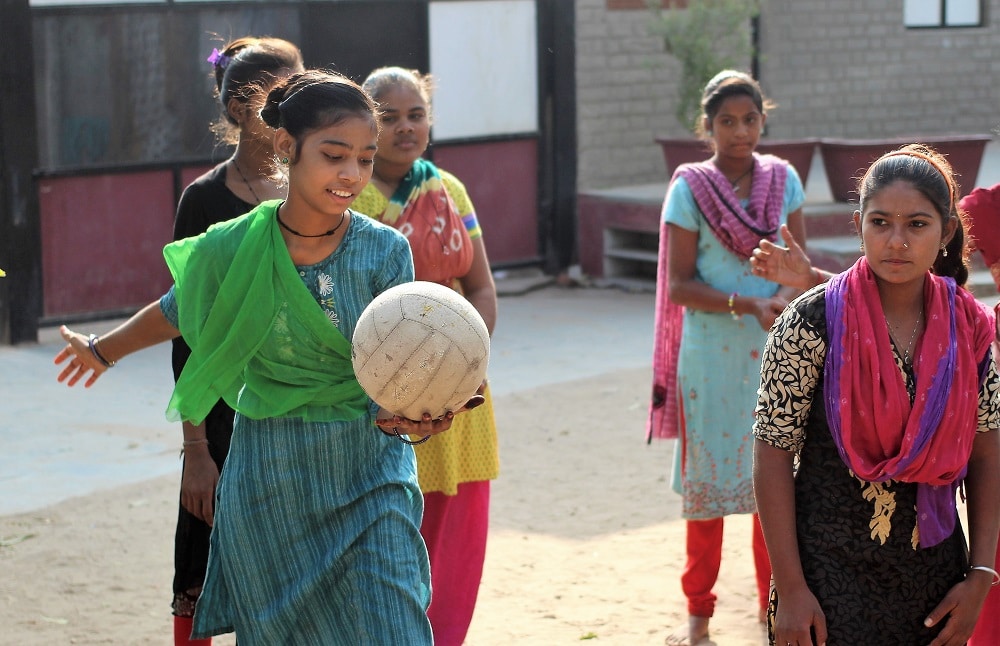
“Our community-based humanitarian projects cut across barriers of class and religion and directly serve and empower those in need,” the team explains. “By seeing God in every individual (manav), service is transformed into worship (sadhna).”
Gandhi’s birthday, 2nd October, is celebrated as a National Holiday in India. In 2020, Manav Sadhna started building homes for two deserving families: the home of a sanitation worker widow mum of four who cleans toilets in hospital whose home was wrongly demolished by builders and local thugs in her absence; and a partially leprosy-infected family of seven who were living in a small dark room with no air or ventilation. “In a couple of months, both families will have nice roomy homes with proper sanitation blocks and proper light and air. Bapu’s soul must be smiling a little more on his birthday.” (Bapu is a word for ‘father’ in many Indian languages such as Gujarati and Marathi, often used to refer to Gandhi.)
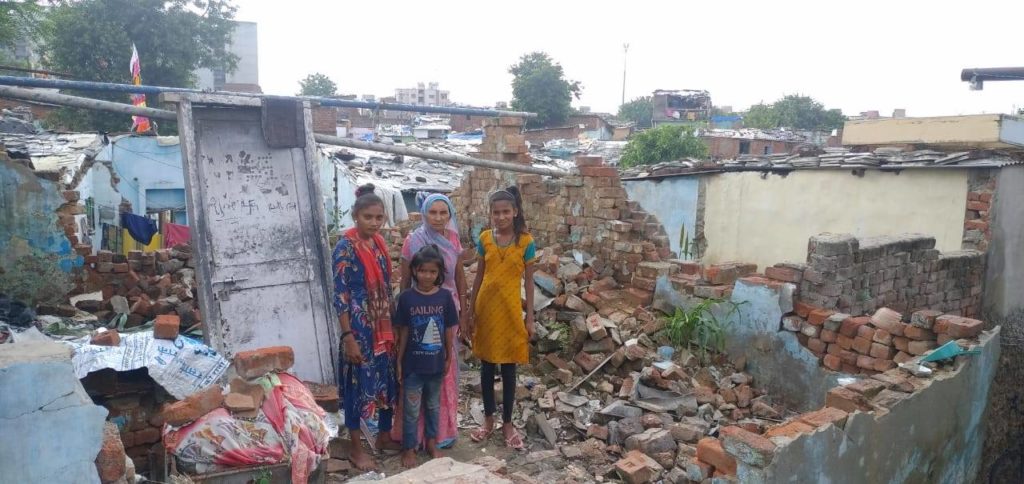
Over the years, Manav Sadhan has also changed habits and educated thousands of girls and women and distributed many sets of reusable sanitary pads in an ongoing program to help young girls in slums and villages.
During the Covid 19 pandemic, Manav Sadhan’s health workers have been committed to provide health services to communities, providing digital thermometers, oximeters and other equipment to health workers. As soon as the lockdown was announced, they started reaching out to the most deserving families in just about all the slum pockets in and around the city.
Teachers and mentors provide home learning. “The big challenge is many children don’t have smartphones or Internet connections. Teachers will call all students once a week and send three lesson recordings each week.” For kids who do not have phones, the teachers are organising which neighbouring students can help.
Meanwhile, countless women like Jashodaben (below), a wife and mother of two, are making double-layered masks through a new livelihood initiative at Manav Sadhna called Shwas (Breath). This programme empowers women from the unorganised sector with a means to support their families financially during the economic crisis. At the same time, they are helping protect others from the coronavirus as the number of cases rise in Ahmedabad.
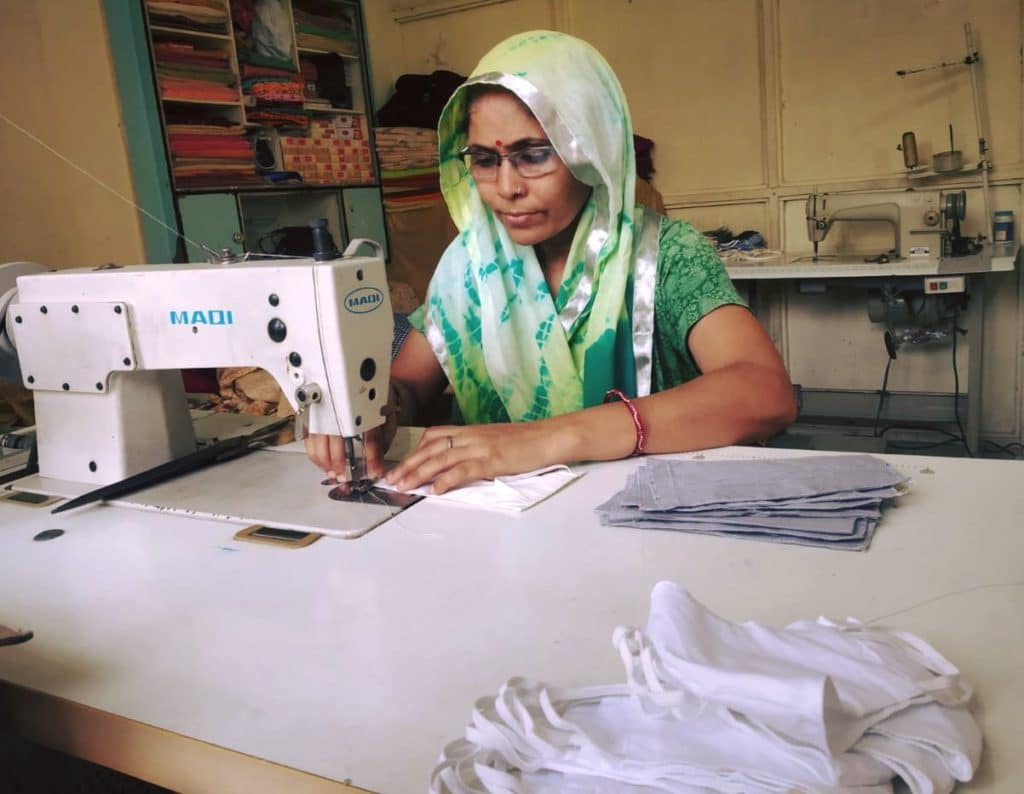
Manav Sadhna is only made possible because of the support of donors and all the fearless, compassionate and tireless volunteers. “These are the heroes who do not serve for fame or appreciation but spend each moment of their life purely to help others.“
AtlasAction: Manav Sadhna welcomes volunteers from around the globe. You can also sponsor masks for people in the communities Manav Sadhna serve.
Read more ► Manav Sadhna was mapped by Kiran Bir Sethi, the design guru who founded India’s top school, in her AtlasChart Top 5: Around India in 5 social projects
Project leader
Gujarat Harijan Sevak Sangh, Safai Vidyalaya & Environmental Sanitation Institute (ESI)
Support the Atlas
We want the Atlas of the Future media platform and our event to be available to everybody, everywhere for free – always. Fancy helping us spread stories of hope and optimism to create a better tomorrow? For those able, we'd be grateful for any donation.
- Please support the Atlas here
- Thank you!
